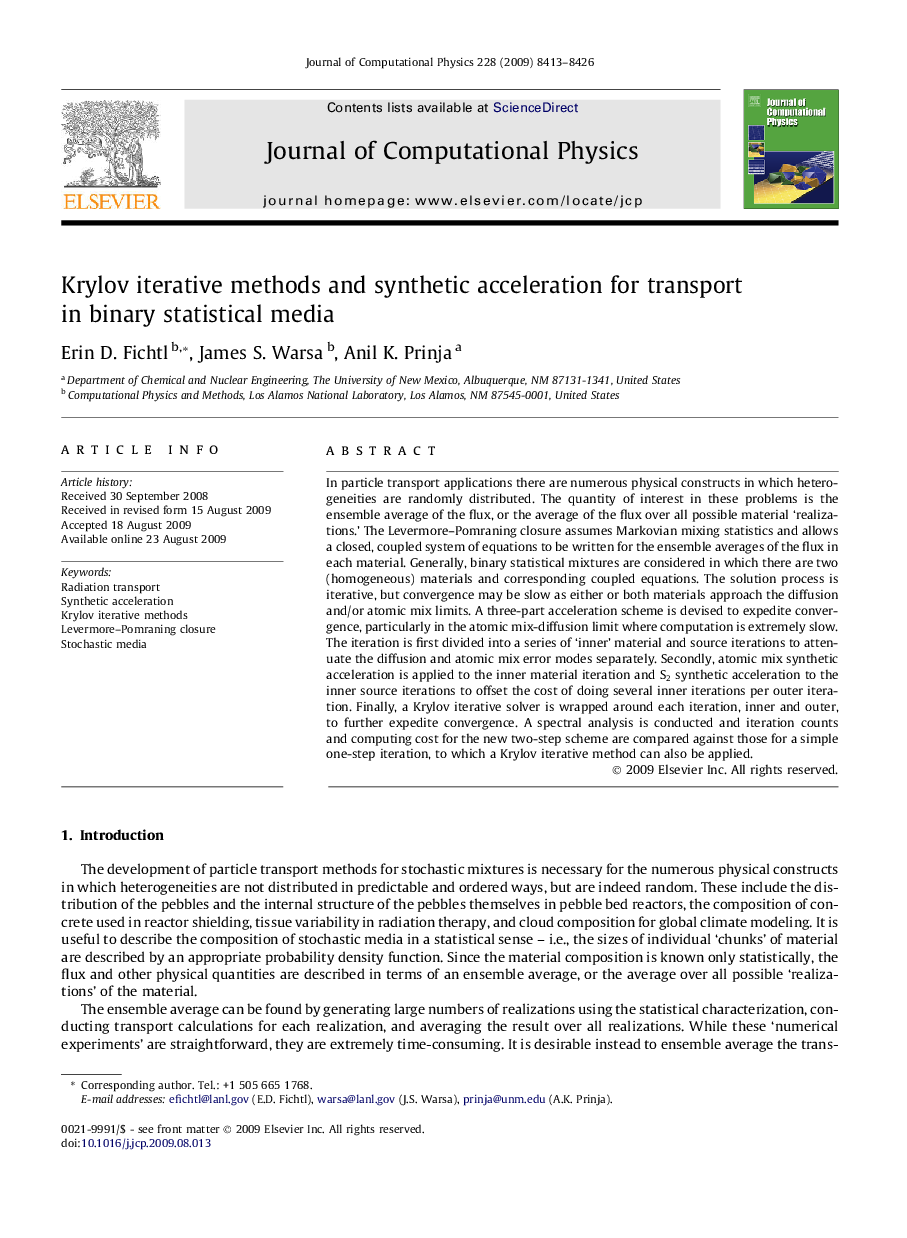| Article ID | Journal | Published Year | Pages | File Type |
|---|---|---|---|---|
| 519815 | Journal of Computational Physics | 2009 | 14 Pages |
In particle transport applications there are numerous physical constructs in which heterogeneities are randomly distributed. The quantity of interest in these problems is the ensemble average of the flux, or the average of the flux over all possible material ‘realizations.’ The Levermore–Pomraning closure assumes Markovian mixing statistics and allows a closed, coupled system of equations to be written for the ensemble averages of the flux in each material. Generally, binary statistical mixtures are considered in which there are two (homogeneous) materials and corresponding coupled equations. The solution process is iterative, but convergence may be slow as either or both materials approach the diffusion and/or atomic mix limits. A three-part acceleration scheme is devised to expedite convergence, particularly in the atomic mix-diffusion limit where computation is extremely slow. The iteration is first divided into a series of ‘inner’ material and source iterations to attenuate the diffusion and atomic mix error modes separately. Secondly, atomic mix synthetic acceleration is applied to the inner material iteration and S2S2 synthetic acceleration to the inner source iterations to offset the cost of doing several inner iterations per outer iteration. Finally, a Krylov iterative solver is wrapped around each iteration, inner and outer, to further expedite convergence. A spectral analysis is conducted and iteration counts and computing cost for the new two-step scheme are compared against those for a simple one-step iteration, to which a Krylov iterative method can also be applied.
